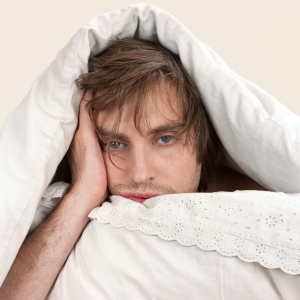Summer Sleep Struggles? These Tips Can Help

Summertime gives us more daylight and longer days. Unfortunately, that can lead to sleep problems, says Stevi Surratt, RRT, supervisor of Cardiopulmonary, Cardiovascular and Sleep Lab programs at Jacksonville Memorial Hospital.
“A change in daylight can affect melatonin, a sleep-inducing hormone. In addition to hormonal changes, a change in routine affects sleep patterns,” said Surratt. “As a result, both children and adults can struggle with establishing regular sleep and wake times during seasonal changes.”
Signs that you or your family need more sleep include:
- Irritability
- Trouble concentrating and forgetfulness
- Yawning
- An increase in appetite
- Depressed mood
Here are some tips for better sleep:
- Create a routine. Set times to wake and sleep daily. Just as you set an alarm to wake, it’s a good idea to set a reminder to sleep as well.
- Create an environment for sleep. Ensure your sleep environment meets your needs. For some, in summertime, this may mean a fan or a cool air conditioner setting, fewer blankets and darkening shades. Creating an environment for sleep also means turning off electronics.
- Eat healthy, nutritious foods and avoid late-night snacks. Avoid eating within two hours of bedtime and limit or omit caffeine, alcohol and nicotine daily.
- Avoid lengthy naps. Try to keep daytime naps short at around 30 minutes.
- Stay active. Being active leads to better sleep, but avoid exercise close to bedtime.
- Address mental health. Often sleep struggles occur because of stress, anxiety or worry. If your mental health is affecting your ability to sleep, speak with a counselor to help you address your mental wellness.
Struggling with sleep?
All five Memorial Health hospitals offer sleep care assistance including sleep studies. Four hospitals offer fully accredited Sleep Disorders Centers: Decatur Memorial, Jacksonville Memorial, Lincoln Memorial and Springfield Memorial.If you have sleep problems, speak with your physician. A sleep study or other specialty referral may help you determine the root cause. Learn more.
Related Articles
Adjusting Your Sleep Schedule for a Full Night’s Rest
Wake Up to the Importance of Quality Sleep